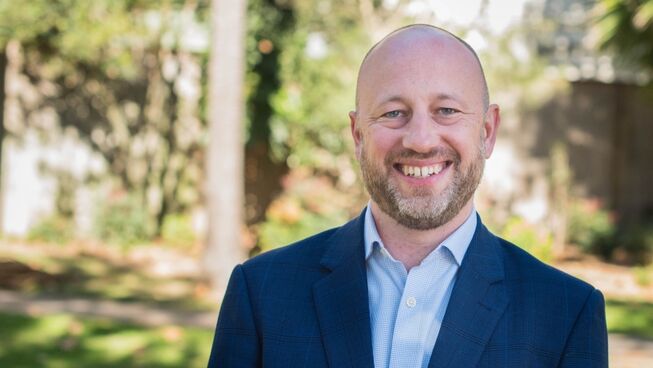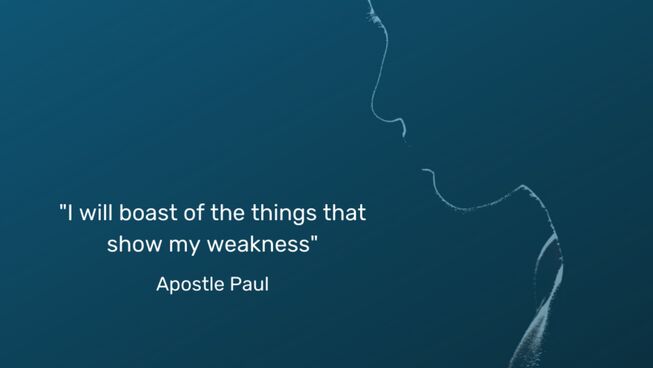Why you should be unmasked in the workplace
Eleanor Oliphant is the lead character in the 2017 bestselling novel Eleanor Oliphant is Completely Fine. She’s a quirky but loveable woman who works in finance at a graphic design company. Her life is fairly ordinary, with her days filled mostly with work, while her evenings are spent alone. She regularly states throughout the book, as the title describes, that she is “completely fine”.
However as the book progresses we discover that maybe she isn’t as fine as she might have us believe. The days of work and lonely evenings are taking their toll, and there’s a secret from her past which weighs heavily upon her. In one of most revealing moments in book she makes this confession: “If someone asks you how you are, you are meant to say fine. You are not meant to say that you cried yourself to sleep last night because you hadn’t spoken to another person for two consecutive days. Fine is what you say.”
“How are you going?”
It’s one of the most common greetings we use in Australia: “How are you going?” And we all know how we’re meant to answer: “Good. How are you?” Fine is what you say…even if you’re not. Part of the reason for this is because we live in an age of perfection where we hide much of lives behind a mask. But the degree to which we know and embrace our righteousness in Christ is the degree to which we will live unmasked, and answer the question “How are you going?” more honestly.
But why should we be unmasked and answer more honestly? Scripture gives us two reasons: it’s good for us, and it’s good for God and His glory. We find these two answers in 2 Corinthians 12.
“A thorn in the flesh”
This chapter begins with Paul reporting some kind of “vision” or “revelation” of God that he experienced, where he, “was caught up to paradise & heard inexpressible things” (12:4). Beyond this, Paul doesn’t provide any more details. Clearly however it was an impressive spiritual experience, the kind of thing that he might have been inclined to boast about. We know that because of how God responds: “Therefore, in order to keep me from becoming conceited, I was given a thorn in my flesh, a messenger of Satan, to torment me” (12:7). To keep Paul from boasting, just like with Job, God allows Satan to inflict him.
What is this specific thorn? Again, Paul doesn’t say. What is clear however is, that whatever this thorn is, he doesn’t want it. “Three times I pleaded with the Lord to take it away from me” (12:8). Paul’s pleading for its removal highlights how debilitating, and perhaps embarrassing, this thorn was to him; it is an affliction that hurts, maybe physically, maybe emotionally, maybe mentally, or maybe all of the above. It leaves him weak, keenly aware of his limitations and brokenness.
And in spite of his repeated pleading, the answer is the same each time: no. But this is where it is good for Paul, and good for us. While the thorn remains, God gives us something far better, something we could never get from Him if He took the thorn away, that is, an experience of His grace, strength, power. “Three times I pleaded with the Lord to take it away from me. But he said to me, “My grace is sufficient for you, for my power is made perfect in weakness” (12:8). Instead of relief from the thorn, God tells Paul you’re going to experience how I sustain you, and that’s something you’d likely remain blind to if I took the thorn away.
“Be like God”
The great temptation of Satan is to make us believe that we can be like God. It’s the temptation that Adam and Eve fall for in the Garden of Eden; “Eat the fruit and you’ll be like God” (Genesis 3:5). Satan has been tempting every single human like this ever since, encouraging us to believe that we don’t need God, and far too often we believe the lie. Things go well for us, and we feel pretty competent, capable and able. And soon we believe the lie of Satan that we don’t need God; I can manage pretty well on my own thank you.
And so, “in order to keep me from becoming conceited, I was given a thorn in my flesh”. But what a gift this thorn is, because as God allows us to be broken to the point of exposing our weaknesses, our vulnerabilities, our humanity, then He can enter in, and in our humbled state show us the true source of our strength. Him.
But note He does this in the midst of the thorn; there’s no promise of its removal in this passage. Elsewhere in Scripture there are countless testimonies of God miraculously and wonderfully removing thorns and afflictions, which is likely why Paul pleads for God to remove it – He knows that God can!
But here He doesn’t. Here the point is that God gives us an experience of His sustaining grace, strength and power in the midst of the thorn. While we remain acutely aware of our weakness, God turns up and acts with strength and power.
Why this is good for us
And this is so good for us. Firstly, because it means we’re thinking and living more in tune with reality and not the lie of Satan. It’s only in God we ultimately “live and move and have our being” (17:28), and thorns (painfully) remind us of that.
Secondly, it’s a gift to know and experience afresh who God really is, and to have our eyes reopened to His sustaining power in our life, the kind of power that raises the dead!
Our self-dependence numbs us to the true glory of God, but when God leaves us with a thorn it wakes us from our slumber and causes us to fall upon Him in our need, and see afresh how good, glorious, and strong He is. And this is for our good…and our joy!
When God says no to removing thorns He gives us something better – Himself. And that comes in weakness not in strength, in valleys not on mountaintops. As theologian J. I. Packer puts it in Knowing God, “Fellowship with the Father and the Son is most vivid and sweet, and Christian joy the greatest, when the cross is heaviest”. Or the thorn thickest.
Why this glorifies God
But how is this good for God’s glory? As we are humbled this moves us to the sidelines of our own lives, and God takes His rightful place on centre stage in our life. When we are weak it becomes clearer (to both ourselves and those near us) that He is the source of the strength in all we achieve, accomplish, and do.
This has always been God’s way of operating – using our weakness to display His strength. Like the Israelites being instructed to use only their voices and trumpets to make the walls of Jericho fall down. Or Gideon’s army reduced to just 300 men, armed simply with trumpets and clay jars filled with lights to defeat the Midianites. Or a foolish death on a Cross which became ultimate source of life. God uses weakness – yours, mine, even the weakness of Christ on the Cross – to display His strength, and so He gets the glory.
Paul explains this further elsewhere in 2 Corinthians 4, where he describes us as clay jars with a treasure inside us, the light of God. But just like in the battle against the Midianites, the light inside the clay jar shines out more brightly when the clay jar is smashed.
“The kingdom of heaven belongs to…”
The best word to describe this is dependence. Weakness leads us into deeper dependence upon God, and dependence is the gateway into the Christian life, as we recognise our need before God for forgiveness; “I can’t do this myself”. As Jesus says, “The kingdom of heaven belongs to…competent adults”. Of course not! God’s kingdom is made up of metaphorical little children, those who live in dependence upon Him.
Perhaps this dependence is no better expressed than in prayer. In her memoir Metanoia, Australian actor Anna McGahan describes the first time she prayed. “My previous contemplative practice had been Eastern-style meditation – an emptying of the mind and detachment from desire. Prayer, by contrast seemed indulgent to me. Constant requesting of what I wanted was selfishness embodied. Yet, I knew that asking for help made a lot more sense than pretending I didn’t need it”. Those are the words of someone who is in tune with God’s reality. And so in all our doing God gets the glory, as thorns lead us to dependence.
The witness of dependence
But as dependence becomes an increasing hallmark of our life that bears a powerful witness to the independence of those around us. When you live and work in ways that demonstrate dependence upon others (and ultimately upon God), that gives a little glimpse to those around you of the gateway into the Christian life. And so this is why weakness is so good for witness, in particular workplace witness.
But this feels confronting doesn’t it, taking off the mask and exposing some of our vulnerabilities, weaknesses, and need for the help of others. And it perhaps feels especially confronting in the workplace, because the workplace is one place more than any other where I’m expected to be competent and in control.
Now this doesn’t mean that we should deliberately pursue incompetence in the workplace! Rather, don’t hide it when you don’t know, can’t do it, or need help. That’s one small way I try to practice being unmasked at work; ask for help. I have no trouble offering help because being the helper makes me look strong. What I find hard is accepting help. So if being unmasked in the workplace all feels too much here is one very small way that you can practice it – ask for help when you need it, say you don’t know when you’re not sure, and acknowledge mistakes when you make them. It is one small way that you can give a glimpse of the way into Christian faith.
Social camouflage
In his book The boy behind the curtain Australian author Tim Winton writes about living near the hospital where his wife worked, and the messiness of life which spilled out of that place. “On any street in any city, there’s a human story walking past you every moment, but it’s usually withheld”. That is, most of us, most of the time, hide our weaknesses behind a mask. “But in the lee of a hospital the social camouflage slips away, and what’s usually disguised is on display. Where else do people bear their own narratives so openly?”
In a fallen world it is only a matter of time before weakness strikes us all, and try as many of our colleagues might, “the social camouflage slips away”. It’s in those moments that if you have been known in the workplace not just for your skills, but also your thorns, that you’ll be the one that your colleagues turn to. That’s because you’ve previously demonstrated to them that weakness is something that you’re acquainted with. And your willingness to be vulnerable in the past also communicated that you can be trusted with their stories of weakness. In those moments you’ll be able to provide “the comfort of God” (2 Corinthians 1:3-7); because you’ve known His comfort in your own weakness in the past, you can share that with others. That’s why being unmasked about your weaknesses is so good for workplace witness.





